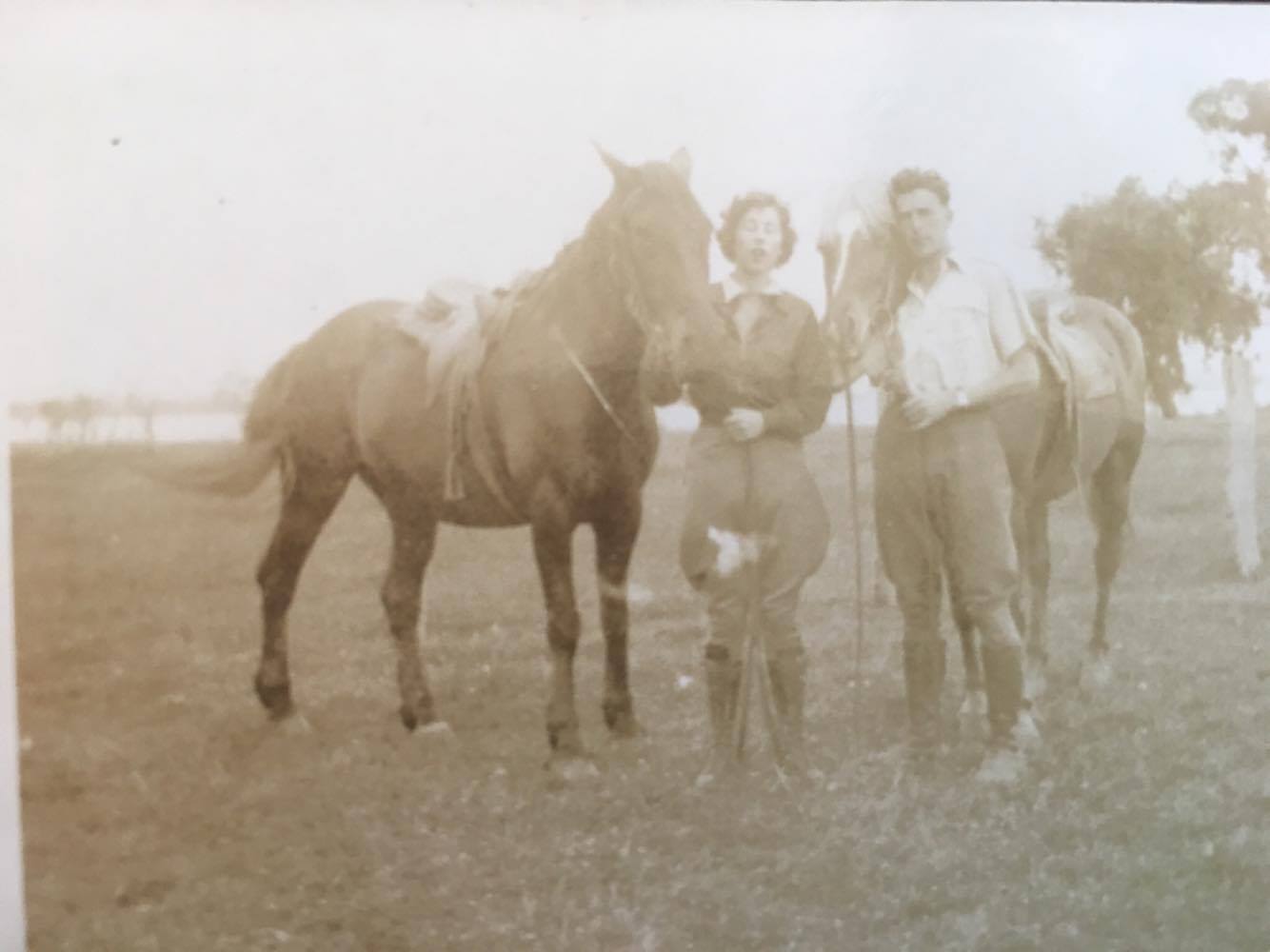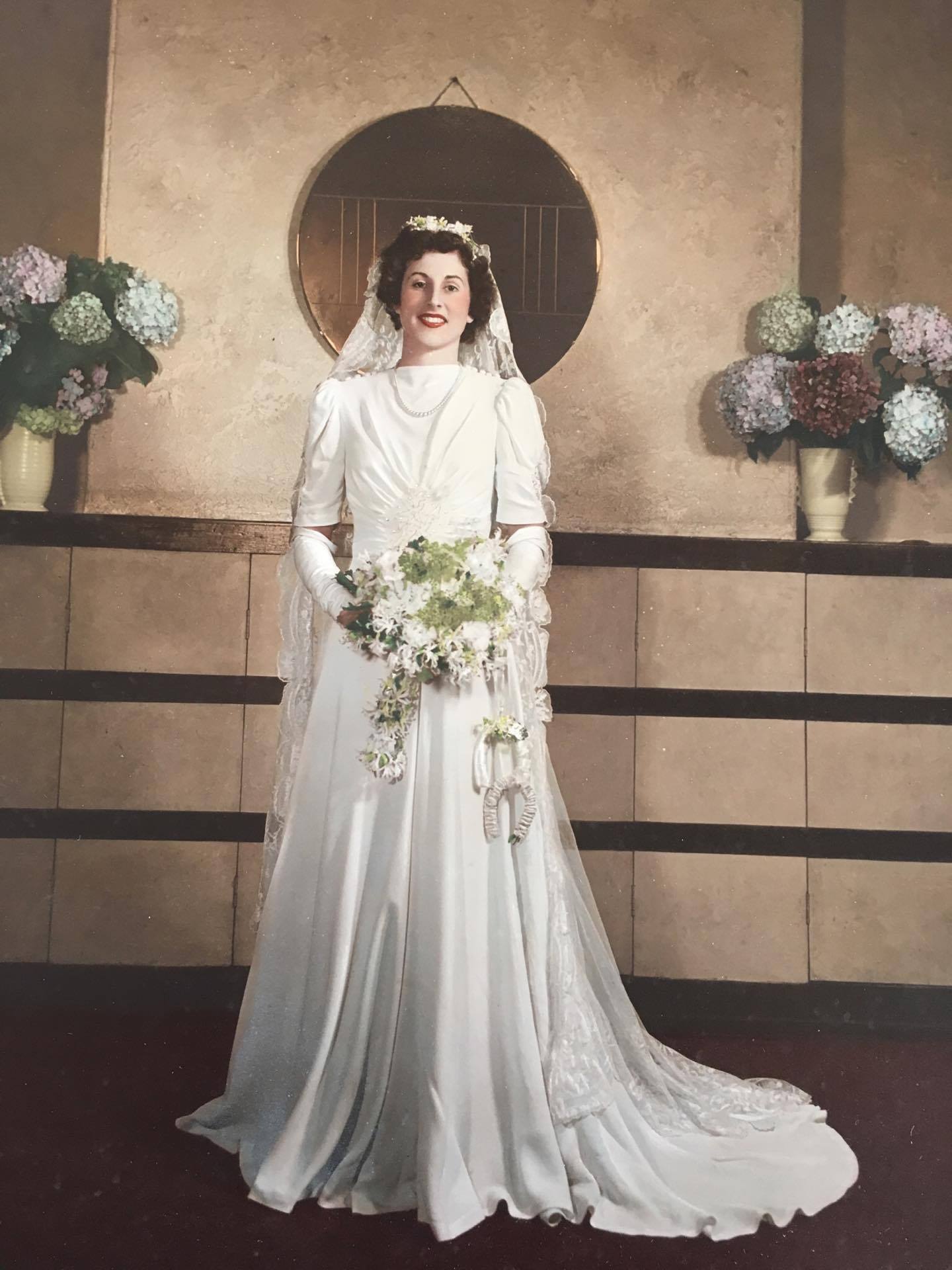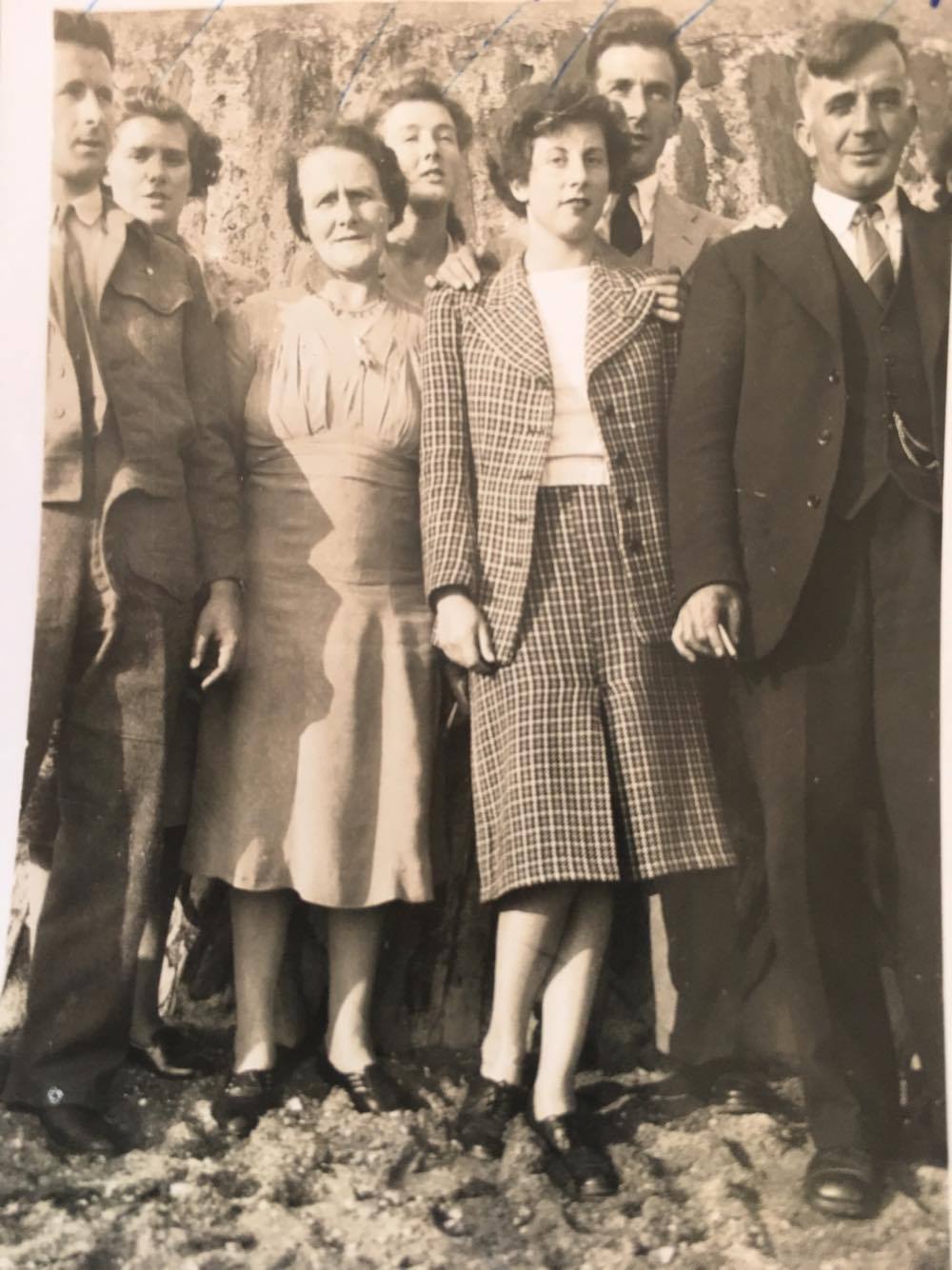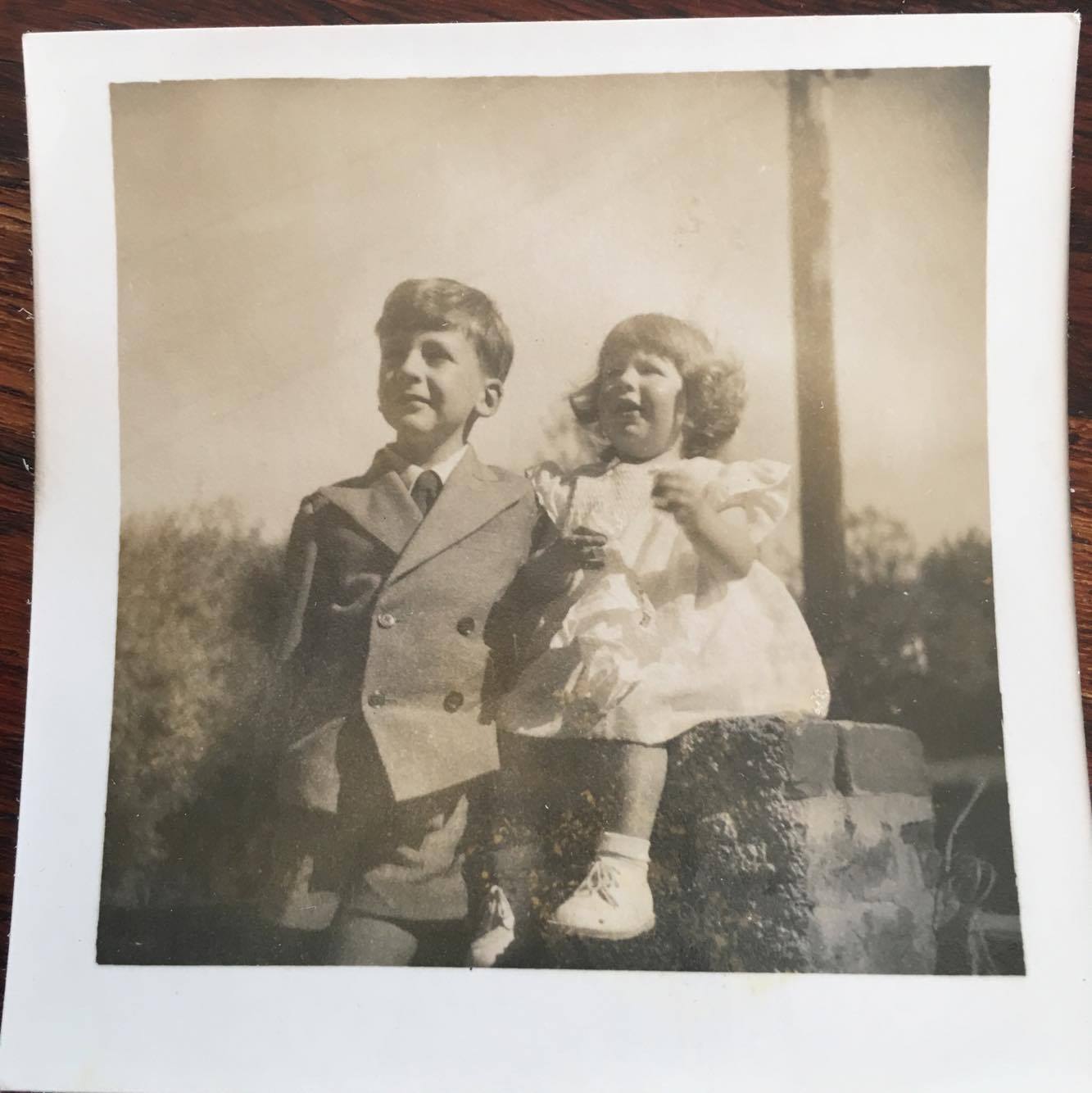

Sitting in the living room of my grandma’s new house in Sorrento the fire crackles next to us and all is well.
My grandma is first generation Australian. Her parents, William and Dorothy, have been gone for a few years now – the better part of a decade. I can see, from the way her eyes lose some happiness and the corners of her mouth stiffen slightly, as we turn the conversation to them, that it still makes her sad. As only the death of her parents could. To lose her mother in March of 2010, followed by her father less than six months later in September, would have been a very difficult and emotional time.
Although my great grandparents may no longer be here; they lived their lives to ensure that we would be.
In 1942 World War II continued to wage itself in the Asian region. William Henry Meikle Hall, of Stirling, Scotland, had never been this far from home. Since the fighting began he had travelled with the RAF’s number 49 Bomber Squadron across Africa and India. With every action that drew him deeper into war the distance to home grew longer and longer.

The Allied Forces had spread themselves across Asia in defense of the ever growing power that was the Japanese army. As the enemies drew closer to securing control over Singapore, the Allies fought with every ounce of bravery and courage until the very last moment.
Bullets rained down as the Allied Forces were pushed further and further back, airfields destroyed and dozens of men and women dead. The RAF squadrons had been all but eliminated by the Japanese and could not offer any defense for the troops on the ground.
With the impending danger of the Japanese heading for the remaining Allied Forces, there was nothing to do by flee. The remaining troops, Air Force, Army and Navy were evacuated by ship to Indonesia, powerless to stop the fall of a country they’d faught hard to maintain control over.
As they retreated and headed towards safety, as the guns rang in the distance and sirens blared, they knew, no matter how much they did not want to admit it, that they had lost this battle.
The departing men and women of the Allied Forces knew that Singapore had fallen.
Arriving in the Indonesian port of Cilicap did not bring much relief to William and the men around him. It would only be a matter of time before they were followed by the very men they had just escaped from.
The only option they had was to retreat once more, to yet another unfamiliar place. So it was in 1942 after Singapore had fallen into enemy hands that they were once again on the move south. That is how William, and any other personnel that needed to be evacuated, found themselves put on a ship bound for Australia.
The war had been long and the men and women were tired. Reaching Melbourne brought a sense of relief that William had not felt in years. Although it wasn’t home as Scotland was, it felt more familiar than any of the countries William had visited thus far.
It was in the home of Albert and Bertha Gange that he found refuge for his time in Australia. In Lucas Street, Brighton, to be exact. A street nestled within Melbourne’s outer suburbs with the traditional houses laid out in a row. His new home, a quaint house, was a welcome sight for a man who had spent the last years of his life between ocean, air and jungle.
Dorothy, though not stunning, was pretty, and very eerily like her mother. Their English complexion, fair skin with curling brunette hair, an inherited trait that reminded them of their origins in England.
Dorothy had known the sorrows of war. For years, she had loved a man named George Williams. During the war he flew with the Royal Air Force as a pilot, until his plane was brought down over Germany.
Grandma recalls that her mother only spoke of him on occasion and though the details were never specific, it was easy to see that she never really got over losing the man that had been her first true love.
Yet, as the war continued and William had no choice but to remain in the Gange home, he grew closer to Dorothy. She would take him horse riding, a true passion of hers, and they spent most of the time they had, together.

So it was, that on the 25th of May 1944, after almost two years of knowing each other and growing more and more fond every day, that William and Dorothy were married at St. Andrews Church in Brighton.
And they were happy.

The war was a story, grandma tells me, her father recalled often; proud of his efforts but afraid for his life. Above all else it was his biggest achievement. She remembers him saying that it was the greatest thing he’d done in life.
Shortly after their marriage, William was offered a place to transfer in to the Royal Asutralian Air Force, which he declined. His time in the Air Force was over. As such, a new jounrey began, one that would first take him back to his home – back to Scotland. He was to be de-mobbed from the RAF and Dorothy, for the first time, would be able to meet the family she had married in to.
Scotland, for all of the beauty held in its rolling green hills and its ancient castles, was difficult. Though happy to be home with the family, with William’s siblings John, Sarah, Esther, Archie and Isabelle, and his parents Archibald and Bessie, life was challenging.

In the early days of their time back in Stirling Dorothy spent her time with William’s family, getting to know them and learning about their way of life. In 1946, her days began to revolve around their son, Iain, born July 25th. For William, he tried his hardest to fall back into his desire to be an architect, but he had lost the passion for it.
With the war over the world was recovering from the tragedies that had unfolded and the resources that needed to be rebuilt. They lived on rations, and William who realised he no longer wanted to pursue architecture, struggled to find work that would support his wife and son.
During, what would be a short lived time in Scotland, another choice was made; this way of life could no longer sustain their needs both then and for what they desired for their future. If they were to raise a family and build a life out of the traumas of war, it needed to be in a place that was familiar; that felt safe.
That is how they found themselves on the ship Oransay in the port of Liverpool in the United Kingdom. The ship that would deliver them to the future they were hoping for, back to Dorothy’s parents, who she missed terribly during her time away, and back to the one place that truly felt like home to both of them.
On the 21st of November 1946 when the ship made port in Fremantle, Western Australia, they knew, that regardless of how long the journey had been and the struggles they’d gone through to get here, they would always be able to call Australia home.
In 1950, they welcomed their second child Denise, my grandma and they never looked back on the lives they once had. Grandma tells me that they never returned to their homes in Europe – they felt no need to. They were more proud to call Australia their home than of any country they lived in prior.

Grandma and I sit for hours and talk about her parents, their origins, their upbringings, their families. We wonder a lot, about what their lives were like before we were here. We sit and try to contemlpate how they were able to survive war and tragedy and heartbreak during a time when it would’ve been so easy to give in to fear.
When we talk about the courage it would’ve taken to pack up their lives and journey across the seas, not once but twice, grandma is proud. I can see it in her smile just how proud she is of her parents, and the decisions ultimately made for their own lives and the lives of their future generations.
Whilst we talk the sun starts to set over the bay, the ferry returns from Queenscliff and we stay there, sifting through boxes of photos and documents that preserve over 100 years of our family history.
Life is full of choices, some good and some bad, but each one leading us on the journey we were destined to take. We will always be able to speculate, because although unsuspecting, ‘what if’ is one of the most dangerous creators of doubt.
What if they had made a different choice?
What if they hadn’t had the courage to change their lives – would I speak with a Scottish accent, would I speak at all?
What if?
What if?
I’m grateful that the choices they made all those years ago mean that we don’t have to think about the what if’s.